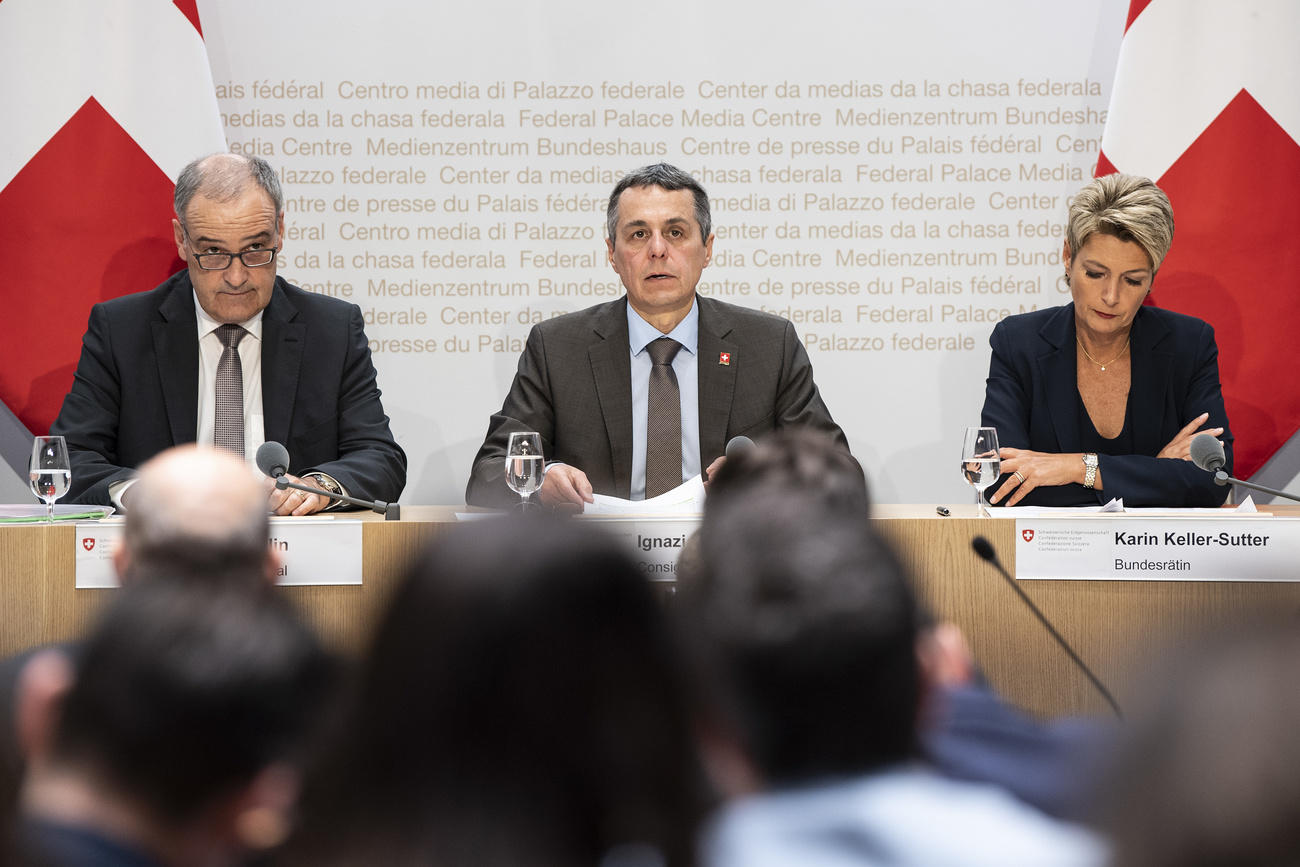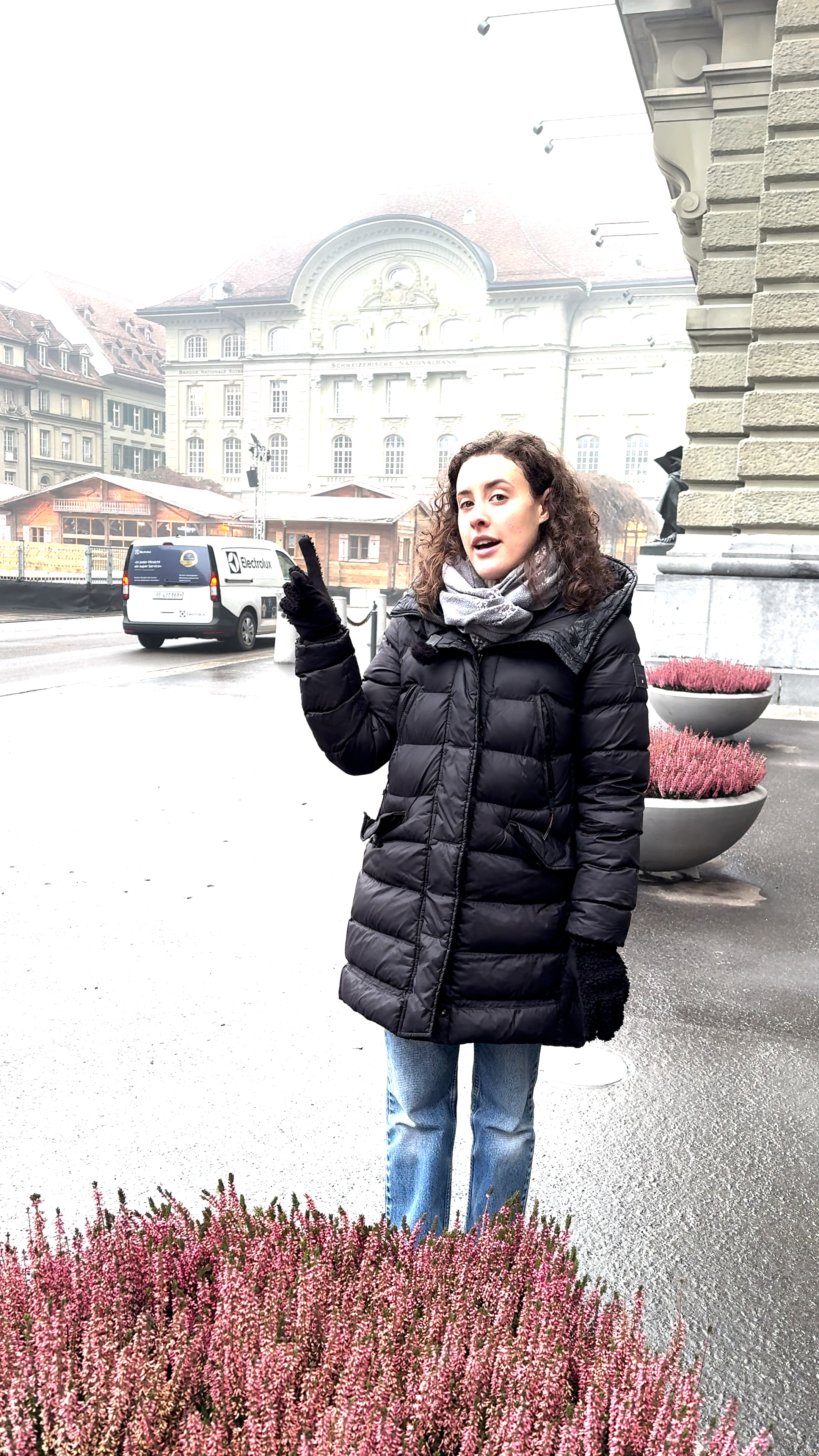
Swiss want ‘more clarification’ on EU framework deal

Switzerland says it will not yet sign a framework agreement aimed at simplifying future ties with the European Union as it wants certain points clarified.
The decision was announced by the government on Friday, following a public consultation.
“We have made a decisive step today,” said Foreign Minister Ignazio Cassis at a press conference. “The consultation allowed us to have a broad discussion.”
Cassis stressed the importance of solid bilateral relations with the EU, but he set no deadline to find a solution. “It is in the interest of both sides to find an agreement, but the quality is paramount,” he said.
For her part, Justice Minister Karin Keller-Sutter said the government expected Brussels to renew full access for Switzerland to the EU stock market.
“The government has done all it could do. It also campaigned in favour of the two issues related to European issues in May,” she said. Swiss voters last month approved a tightening of gun control and a reform of the corporate tax system in line with the EU.
The European Commission said that the government’s comments seemed to be “a positive overall development”.
It will now read the letter carefully and give a full response at a later date, a spokeswoman told the Keystone-SDA in written comments.
Brussels had given Switzerland until July 2019 to decide whether it wanted to accept the deal and has already made clear that it would be unhappy about a further delay.
+ What is the EU framework agreement?
Three concerns
On Friday, the government saidExternal link that the consultations had thrown up three main concerns: maintaining the current level of wage and worker protection – a key demand – as well as state subsidies and citizens’ rights. “On this basis, the government demands clarifications of these areas,” it said in a statement.
It added that it had sent a letter to the European Commission, declaring its readiness to “engage in dialogue with the EU” on these issues which must be settled before it can sign the deal and present it to the Swiss parliament.
But it also emphasised the importance of “respecting internal procedures” [giving citizens the final in say in political decision-making] in the search for solutions to ensure that there is “strong support for the agreement”. In fact, it was “practically certain” that the deal would have to be put to a popular vote, the letter added.
Experts say failure to endorse the treaty and begin the ratification process could severely shake Swiss ties with its biggest trading partner, potentially disrupting commerce and cross-border stock trading.
Reaction
The government’s decision to demand clarifications mostly met with approval among the political parties. Only the rightwing Swiss People’s Party called it a partial success and said that the fact that the deal had not been signed was down to pressure from the party.
It still had a problem with automatically taking on EU laws and verdicts and called on the government to reject the framework deal as it “massively affected” Swiss independence, direct democracy and standard of living.
For its part, the Swiss business federation, economiesuisse, welcomed the government’s support for the bilateral path, which had the highest priority for the Swiss economy, as well as the move towards a quick conclusion of outstanding issues.
The Trade Union Federation and Travail Suisse added that they were pleased that the government had not capitulated on the wage and work protection issues.
What’s at stake
Since 2014, talks have been taking place to formalise relations between Bern and Brussels, currently covered by around 120 separate bilateral accords negotiated since a 1992 referendum in the Alpine state rejected joining the European Economic Area.
+ Swiss-EU relations – key milestones
The proposed agreement covers five of the larger bilateral deals: free movement of people, mutual recognition of industrial standards, agricultural products, air transport, and land transport.
The Swiss government has come out against a right-wing proposal to end free movement of people between Switzerland and the EU. Keller-Sutter reiterated that a yes to the initiative would result in a “Swiss Brexit” and put jobs at risk.
The initiative, launched by the Swiss People’s Party and Campaign for an Independent and Neutral Switzerland group, says Switzerland should be able to regulate foreign immigration autonomously. It seeks to ban any new treaty or obligation under international law that would grant free movement to foreign nationals. Existing treaties cannot be amended benefiting foreigners, it states.

In compliance with the JTI standards
More: SWI swissinfo.ch certified by the Journalism Trust Initiative






























You can find an overview of ongoing debates with our journalists here . Please join us!
If you want to start a conversation about a topic raised in this article or want to report factual errors, email us at english@swissinfo.ch.